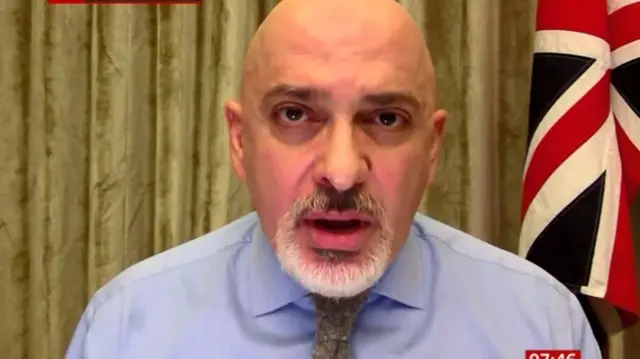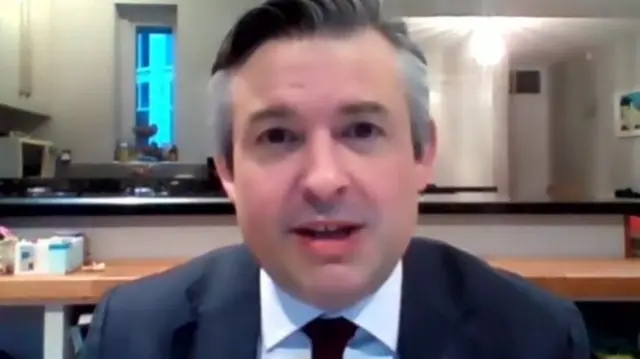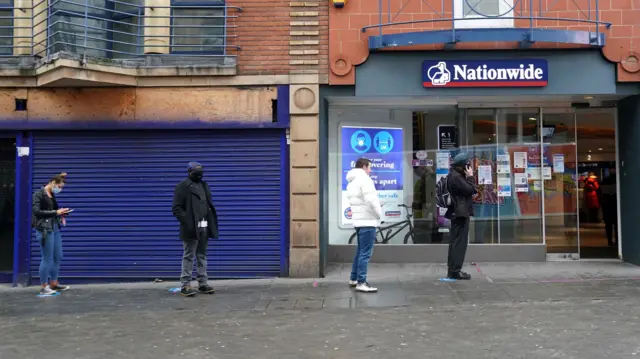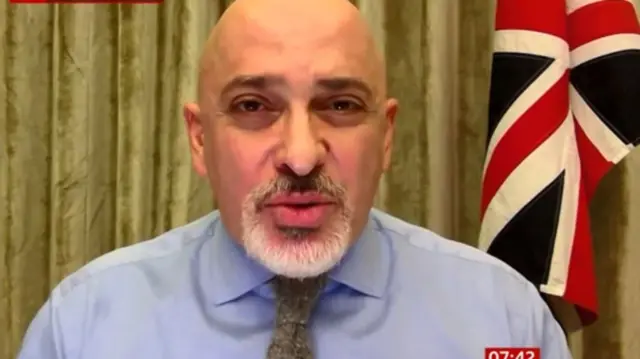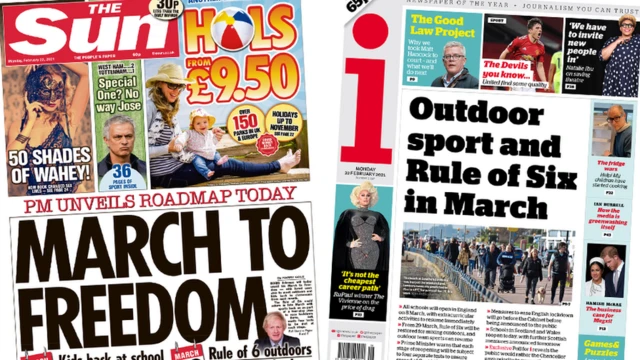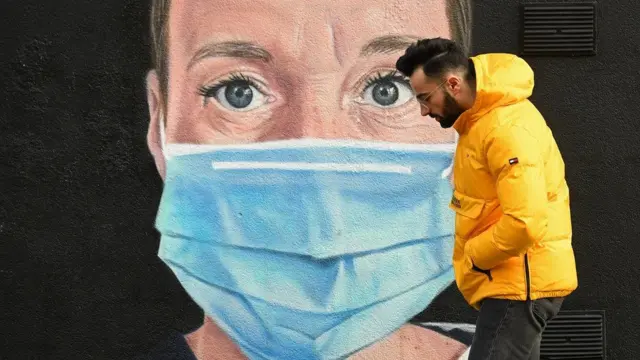Could 10m pupils back at school push the rate of spread too high?published at 09:00 GMT 22 February 2021
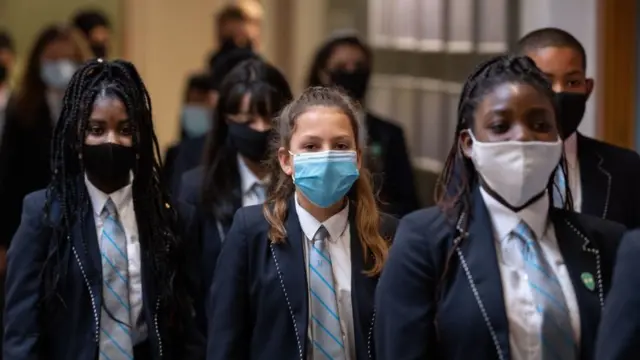 Image source, Getty Images
Image source, Getty ImagesThe vaccines minister Nadim Zahawi has been speaking to Mishal Husain on BBC Radio 4's Today Programme about children going back to school in England.
Husain asks: "Is it back to school for all pupils on March 8?"
He says: "Yes. We will give teachers at least two weeks notice to be able to prepare... we've had three million tests in schools since January and 50m lateral flow tests have gone to schools and colleges across the country."
Husain replies: "Two weeks today, 10m pupils will be heading back into school. That's a big difference to the staggered return that's already under way in Scotland and Wales and is being planned for Northern Ireland. Do you accept that that decision on schools in England is likely, or at least could well, push R (the rate of the virus' reproduction) above 1 again?"
Zahawi says it's "no coincidence" that the date of 8 March has been chosen because it's three weeks after the last person in the top four most vulnerable groups has had their first vaccine, so protection will have kicked in.
He's asked if he is going release scientific evidence to show the plan is manageable and safe as one of the teaching unions has called it "a reckless course of action".
He says "we have the most comprehensive data dashboard of any nation in the world" which is shared at every coronavirus press conference.
